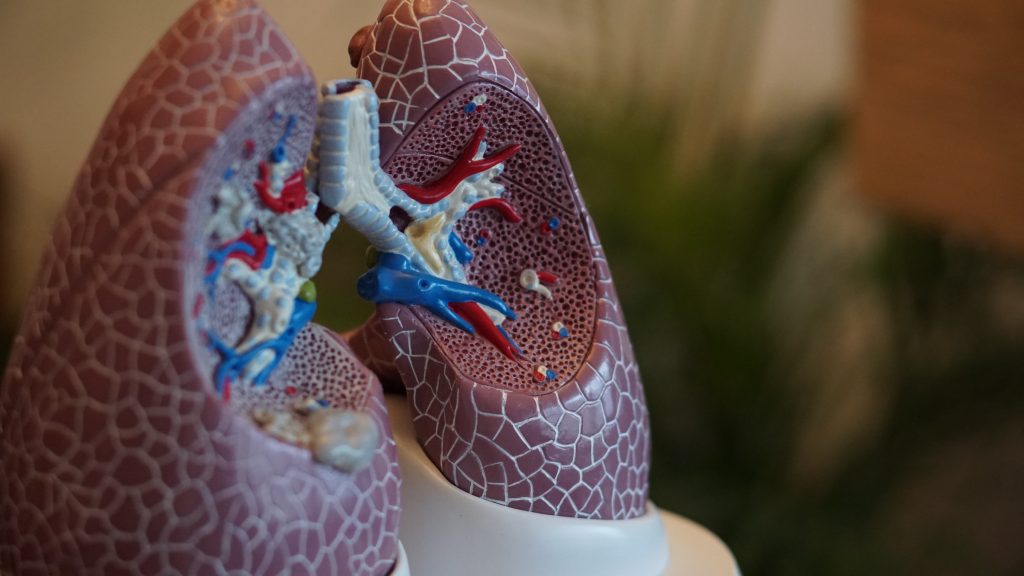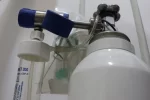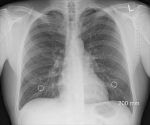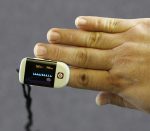
According to the U.S. News and World Report, respiratory therapy is the 21st best job to have in the United States, based on future job prospects, median salary, and a variety of other benefits.
Within the healthcare industry, U.S. News and World Report further ranked the career as the 16th best.
If these statistics are appealing, then this may be an excellent career choice!
Before deciding upon whether to train in this field, you must understand what respiratory therapists do and the pros and cons of the position.
Keep reading to learn more about this important and expanding career!
Page Navigation
What Does a Respiratory Therapist Do?
Respiratory therapists play a crucial role within the medical field.
The Bureau of Labor Statistics defines the job as an individual who cares for patients with breathing problems including chronic respiratory disease or asthma.
These patients range from the elderly with diseased lungs to premature infants with undeveloped lungs.
Respiratory therapists also provide emergency care to patients experiencing drowning, shock, or heart attacks.
Pros of Being a Respiratory Therapist

In addition to an excellent salary and future growth, there are many advantages to being a respiratory therapist, including:
Earn Your Degree Online
If you choose this career path, one of the greatest advantages compared to other medical fields is the ability to complete your degree online.
This allows you to balance schoolwork, social life, and your work life.
Also, earning an online degree offers the benefit of not accruing on-campus room and board and transportation costs.
Furthermore, with the technological advancement of telehealth, your job could end up being mostly online, which means working from home.
This will give you an excellent work-life balance without additional commuting costs.
Everyday Will Be Different
One of the greatest aspects of becoming a respiratory therapist is your day will never be boring.
You will see a variety of patients with different ailments and needs.
This is excellent for those who get bored doing the same thing every day.
A respiratory therapy career will keep your boredom to a minimum compared to sitting at a desk.
Helping People While at Their Worst
Another one of the greatest benefits of this career path is the opportunity to help others when they are at their worst.
Most seek medical care when there is a problem so you will be helping them feel better and improve their lives.
The fact that your skills and knowledge can make a situation better for another human will provide endless joy and benefits.
Schedule Flexibility
While you may have hectic hours, there is still a decent amount of flexibility in the industry, which is a major advantage.
For instance, if you work 13-hour shifts, you will only work 12-days per month, compared to a desk job that is 20-days per month.
This gives you multiple days off when scheduled accordingly, to attend all required appointments, and run all errands when everyone else is working.
Student Aid and Scholarships Are Available
No matter how you consider it, education is always expensive because it delivers life-long skills.
Unfortunately, you cannot become a respiratory therapist without earning a degree.
Luckily, student aid is available through the Department of Education’s FAFSA (Free Application for Federal Student Aid).
There are also countless scholarships available at the post-graduate and undergraduate levels in case you want to jump right into the field or switch careers entirely.
Travel Opportunities
If you are interested in traveling but your current career doesn’t allow it or want to travel more post-graduation, proceeding with this career path allows you to work as a travel respiratory therapist.
This allows you to travel around the country, sometimes abroad while working to help others.
You can balance your passion for traveling with your necessity to work.
Many follow the respiratory therapist career path for this exact reason.
Work in Different Environments
Respiratory therapists are needed across a variety of in-patient and out-patient settings including academia, urgent care, ambulatory surgery, sleep centers, clinics, and hospitals.
If one setting does not fit your lifestyle then you have several others from which to choose.
Cons of Being a Respiratory Therapist

Like with any position, there are disadvantages to becoming a respiratory therapist, including:
Expect Long Hours
Like with most medical professions, expect to work long hours.
It is not uncommon for a respiratory therapist to work between eight and 13 hours per day.
Working these long shifts over several days will result in complete exhaustion.
This will strain your personal life and could lead to burnout, so it is important to be mentally prepared for lengthy hours at the hospital or practice before entering the field.
Licensure Is Required
Every U.S. state except Alaska requires respiratory therapists to acquire licensure before practicing.
Each state has its regulations and rules that must be met before taking your licensure exam.
This test is offered by the American Association for Respiratory Care or the National Board for Respiratory Care.
Even after successfully becoming licensed, you must reapply every five years to renew the licensure.
Must-have Certification
Two certifications exist within the field: Certified Respiratory Therapist (CRT) and Registered Respiratory Therapist (RRT).
After graduation, you will first take the Therapist Multiple-Choice exam which has two cut scores.
If you fall within the lower cut score, you will earn the CRT and the high score will grant you CRT plus eligibility for the Clinical Simulation Exam.
If you pass this exam, then you will be awarded the nationally recognized RRT.
Therefore, for those who don’t test well, taking these extra exams after graduation may not be the best fit.
Need to Advance Your Degree to Climb the Ladder
To leave the bedside of patients and further your career within the field, you must continue your education.
That means you must complete a master’s degree which will open additional fields including clinical specialist, case manager, or disease manager.
Some hospitals or practices may pay for your advanced education if you stay with them for a certain number of years post-graduation.
Those that do not will require you to pay out of pocket.
The master’s degree minimum is 36 credit hours, which could take several years while working full-time.
You Will Be Exposed to Toxic Medicines
Since you will be giving patients a variety of treatments throughout the day, you will be exposed to toxic medications.
One of the primary treatments a respiratory therapist administers is aerosolized medications, which can be harmful to breathe regularly.
Since this is a popular treatment, you will be exposed to this medication daily, which could harm your health over time.
You Will Be on Your Feet All Day
Since you will be treating numerous patients throughout the day, you are guaranteed to be on your feet with little downtime.
Your job will be physically and mentally labor-intensive and demanding most of the time.
While you weigh the pros and cons of following this career path, consider that you are going to get excellent exercise but will have aching feet and legs by the end of each shift.
Your Daily Job Will Be Stressful
Working in the healthcare industry always equates to daily stress because you will encounter intense situations that could be a matter of life and death.
One of the greatest disadvantages of being a respiratory therapist is you must manage stressful cases and could be too much for some individuals to handle.
If you work in an emergency room, then a high-stress level is guaranteed but could also be difficult at private practices.
Should You Become a Respiratory Therapist?

Now that you are aware of what a respiratory therapist does and the pros and cons of the field, you have a lot to think about.
While there are many traits of a respiratory therapist, the main two are social and investigative.
A social person thrives in social situations, especially when dealing with the public.
If you like to work with others and love helping people, then a respiratory therapist is the right career for you.
The best in the field offers a sensitive nature, and are caring and empathetic toward their patients, which allows them to understand others’ moods and feelings.
The investigative side of being a respiratory therapist is the ability to analyze a situation before making critical decisions.
This type enjoys solving problems, which is common in the medical field, studying, and reading.
You must be able to think independently before making life-changing decisions with your patients.
Sound good?
Start studying!
Pros and Cons of Being a Respiratory Therapist Summary Table
| Pros of Being a Respiratory Therapist | Cons of Being a Respiratory Therapist |
|---|---|
| Earn Your Degree Online | Expect Long Hours |
| Everyday Will Be Different | Licensure Is Required |
| Helping People While at Their Worst | Must-have Certification |
| Schedule Flexibility | Need to Advance Your Degree to Climb the Ladder |
| Student Aid and Scholarships Are Available | You Will Be Exposed to Toxic Medicines |
| Travel Opportunities | You Will Be on Your Feet All Day |
| Work in Different Environments | Your Daily Job Will Be Stressful |








